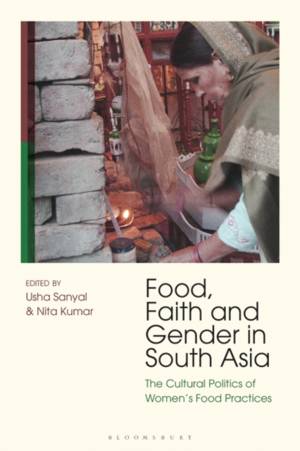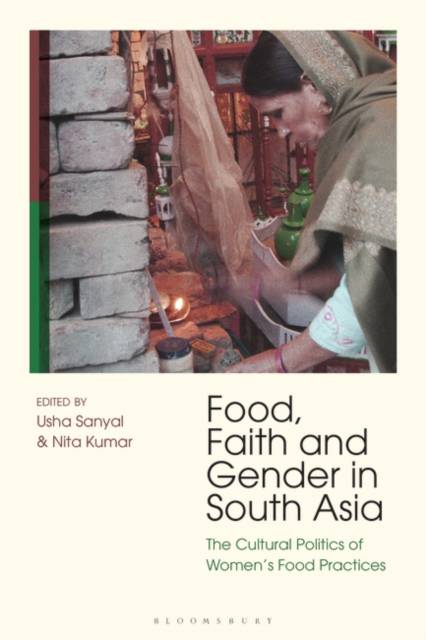
- Afhalen na 1 uur in een winkel met voorraad
- Gratis thuislevering in België vanaf € 30
- Ruim aanbod met 7 miljoen producten
- Afhalen na 1 uur in een winkel met voorraad
- Gratis thuislevering in België vanaf € 30
- Ruim aanbod met 7 miljoen producten
Zoeken
Food, Faith and Gender in South Asia
The Cultural Politics of Women's Food Practices
€ 228,95
+ 457 punten
Omschrijving
How do women express individual agency when engaging in seemingly prescribed or approved practices such as religious fasting? How are sectarian identities played out in the performance of food piety? What do food practices tell us about how women negotiate changes in family relationships?
This collection offers a variety of distinct perspectives on these questions. Organized thematically, areas explored include the subordination of women, the nature of resistance, boundary making and the construction of identity and community. Methodologically, the essays use imaginative reconstructions of women's experiences, particularly where the only accounts available are written by men. The essays focus on Hindus and Muslims in South Asia, Sri Lankan Buddhist women and South Asians in the diaspora in the US and UK. Pioneering new research into food and gender roles in South Asia, this will be of use to students of food studies, sociology, anthropology and cultural studies.Specificaties
Betrokkenen
- Uitgeverij:
Inhoud
- Aantal bladzijden:
- 240
- Taal:
- Engels
- Reeks:
Eigenschappen
- Productcode (EAN):
- 9781350137066
- Verschijningsdatum:
- 20/02/2020
- Uitvoering:
- Hardcover
- Formaat:
- Genaaid
- Afmetingen:
- 160 mm x 236 mm
- Gewicht:
- 498 g

Alleen bij Standaard Boekhandel
+ 457 punten op je klantenkaart van Standaard Boekhandel
Beoordelingen
We publiceren alleen reviews die voldoen aan de voorwaarden voor reviews. Bekijk onze voorwaarden voor reviews.










